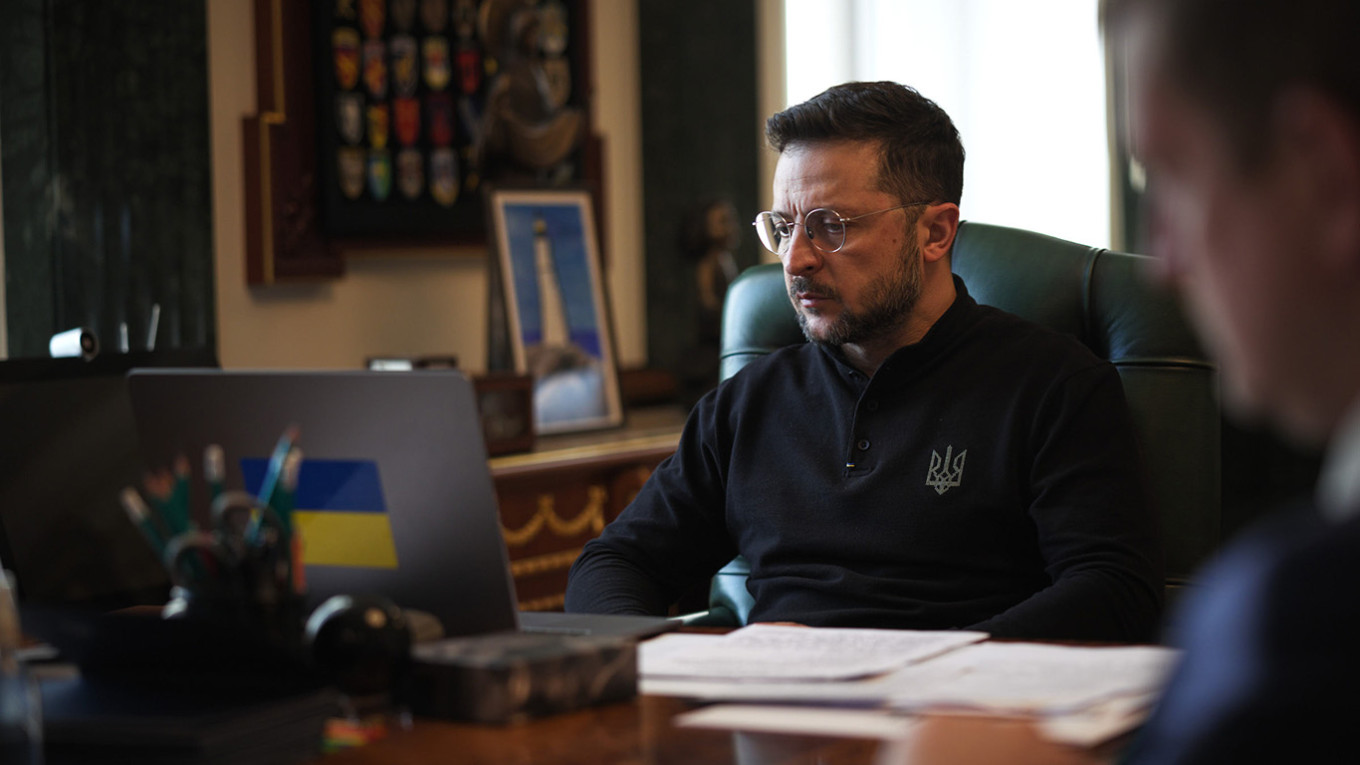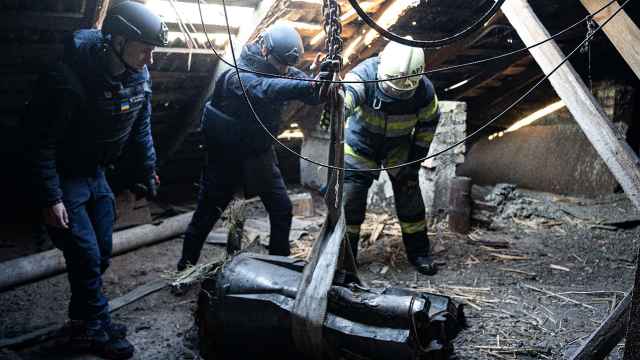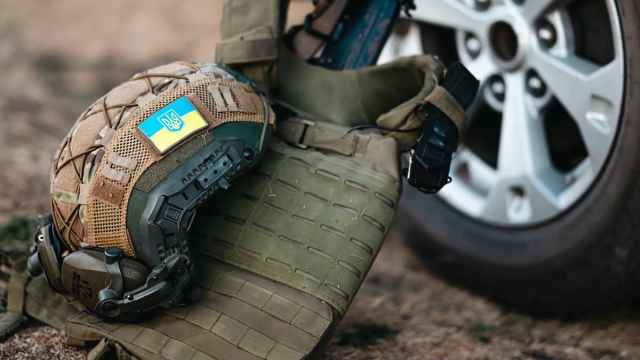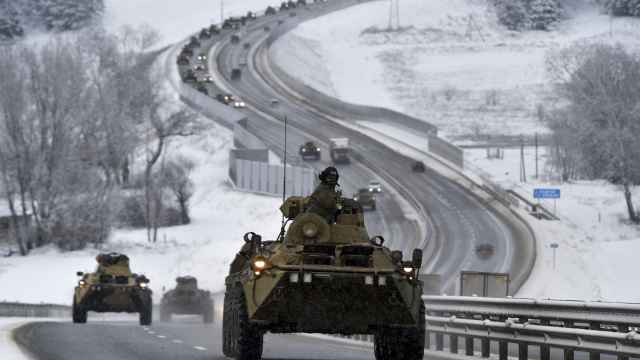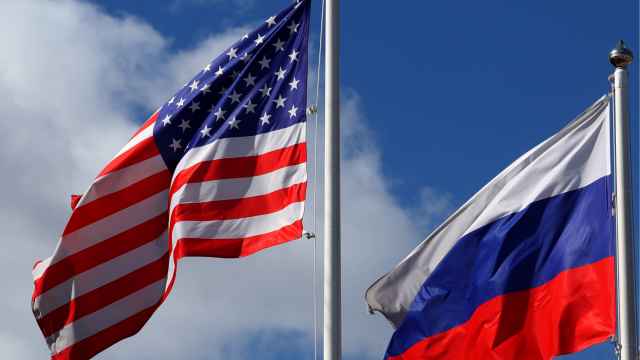The United States and Ukraine on Wednesday signed a minerals deal after a two-month delay, in what President Donald Trump's administration called a new form of U.S. commitment to Kyiv after the end of military aid.
Ukraine said it secured key interests after protracted negotiations, including full sovereignty over its own rare earths, which are vital for new technologies and largely untapped.
Trump had initially demanded rights to Ukraine's mineral wealth as compensation for the billions of dollars in U.S. weapons sent under former president Joe Biden after Russia invaded just over three years ago.
After initial hesitation, Ukraine has accepted a minerals accord as a way to secure long-term investment by the United States, as Trump tries to drastically scale back U.S. security commitments around the world.
Announcing the signing of the deal in Washington, Treasury Secretary Scott Bessent said it showed "both sides' commitment to lasting peace and prosperity in Ukraine."
"This agreement signals clearly to Russia that the Trump administration is committed to a peace process centered on a free, sovereign and prosperous Ukraine over the long term," Bessent said.
"And to be clear, no state or person who financed or supplied the Russian war machine will be allowed to benefit from the reconstruction of Ukraine."
In Kyiv, Prime Minister Denys Shmyhal said on national television that the agreement was "good, equal and beneficial."
In a post on Telegram, Shmyhal said that the two countries would establish a Reconstruction Investment Fund with each side having 50% voting rights.
"Ukraine retains full control over its subsoil, infrastructure and natural resources," he said.
Meeting a key concern for Kyiv, he said Ukraine would not be asked to pay back any "debt" for the billions of dollars in U.S. weapons and other support since Russia invaded in February 2022.
"The fund's profits will be reinvested exclusively in Ukraine," he said.
Trump had originally sought $500 billion in mineral wealth — around four times what the United States has contributed to Ukraine since the war.
U.S. presence against 'bad actors'
Trump has balked at offering security guarantees to Ukraine and has rejected its aspiration to join NATO.
But Trump said on Wednesday that a U.S. presence on the ground would benefit Ukraine.
"The American presence will, I think, keep a lot of bad actors out of the country or certainly out of the area where we're doing the digging," Trump said at the cabinet meeting.
Secretary of State Marco Rubio on Tuesday threatened that the Trump administration would give up on mediation on the conflict — which Trump had vowed during the campaign to end on his first day in office — unless the two sides come forward with "concrete proposals."
Trump has pressed for a settlement in which Ukraine would give up some territory seized by Russia, which has rejected U.S.-backed overtures for a ceasefire of at least 30 days.
President Volodymyr Zelensky has ruled out any formal concession to Russia of Crimea, the peninsula seized in 2014 and whose annexation by Moscow is roundly rejected internationally.
But Zelensky has taken care to voice support for Trump's diplomacy after a disastrous Feb. 28 White House meeting where Trump and Vice President J.D. Vance berated him for allegedly being ungrateful for U.S. assistance.
Zelensky had been due to sign the minerals agreement at the White House but was abruptly shown the door after the stunning on-camera feud.
Ukraine holds some 5% of the world's mineral resources and rare earths, according to various estimates. But work has not yet started on tapping many of the resources and many sites are in territory now controlled by Russian forces.
Notably, Ukraine has around 20% of the world's graphite, an essential material for electric batteries, according to France's Bureau of Geological and Mining Research.
Ukraine is also a major producer of manganese and titanium, and says it possesses the largest lithium deposits in Europe.
Russia controls about 20% of Ukraine's territory after more than three years of brutal fighting that has killed tens of thousands including civilians.
Ukraine launched a surprise incursion last August into Russia's Kursk region. Moscow claimed to have fully cleared out Ukrainian forces over the weekend.
Russia said Wednesday that 288 civilians died during the Kursk incursion.
A Message from The Moscow Times:
Dear readers,
We are facing unprecedented challenges. Russia's Prosecutor General's Office has designated The Moscow Times as an "undesirable" organization, criminalizing our work and putting our staff at risk of prosecution. This follows our earlier unjust labeling as a "foreign agent."
These actions are direct attempts to silence independent journalism in Russia. The authorities claim our work "discredits the decisions of the Russian leadership." We see things differently: we strive to provide accurate, unbiased reporting on Russia.
We, the journalists of The Moscow Times, refuse to be silenced. But to continue our work, we need your help.
Your support, no matter how small, makes a world of difference. If you can, please support us monthly starting from just $2. It's quick to set up, and every contribution makes a significant impact.
By supporting The Moscow Times, you're defending open, independent journalism in the face of repression. Thank you for standing with us.
Remind me later.


